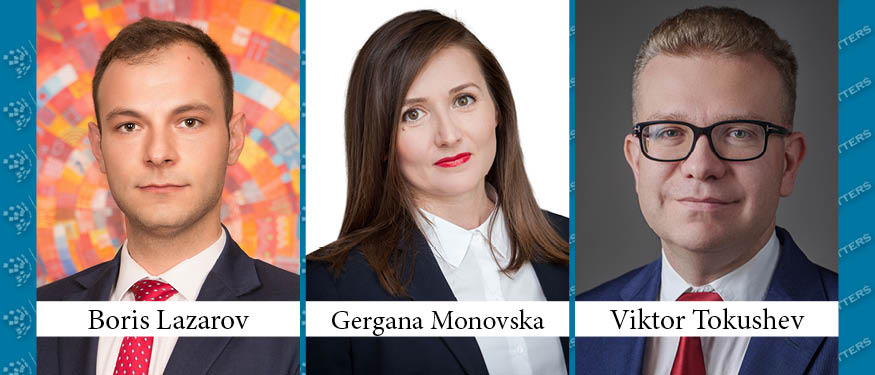Where: Why in Istanbul, of course. The size of a couple of New Yorks, Istanbul is one metropolis that made the right decision on urban wildlife. Mice and rats can be unseemly and dangerous, and dogs tend to leave a mess in the middle of the street. Cats, on the other hand, are clean, take care of the rat problem, are reasonably well-behaved, and are just exceedingly cute. Well done, Istanbul!
Critical Skills in the GC Toolkit
Setting the stage at the recently held CEE Legal Matters GC Summit in Istanbul, top-tier legal professionals at prominent companies and law firms alike – from across CEE and beyond – shared their insights on what General Counsels must have in their toolbox to guarantee the delivery of high-quality work. Specifically, the experts considered the importance of the GC role as a trusted advisor, getting the most out of negotiations, and the specifics of client service from a GC perspective.
The Push-Pull Factors of Bulgarian Infrastructure
Bulgaria’s infrastructure sector has seen major projects completed and many more are planned. With the country facing political turmoil and corruption still an infrastructure buzzword, Kinstellar Partner Antonia Mavrova and Gugushev and Partners Senior Partner Victor Gugushev navigate the intricacies of Bulgarian infrastructure.
If You Build It, They Will Come: Charting Bulgaria’s Capital Markets Resurgence
For Bulgaria’s capital markets, the past ten years saw several landmark developments, large IPOs, and programs and initiatives tailored for small and medium-sized enterprise needs. Penkov Markov & Partners Associated Partner Boris Lazarov, Djingov Gouginski Kyutchukov & Velichkov Partner Gergana Monovska, and Tokushev and Partners Managing Partner Viktor Tokushev walk us through the highlights.
All Hail the Superbank
In recent years, the major development in Hungary’s banking system is the establishment of the country’s superbank through the merger of Budapest Bank, MKB Bank, and the Takarek Group. DLA Piper Partner Andras Nemescsoi, Forgo Damjanovic & Partners Managing Partner Gabor Damjanovic, and Jalsovszky Law Firm Managing Partner Pal Jalsovszky share insights into the driving forces behind this development, its current status, and its anticipated impact on Hungary’s banking sector.
Budapest’s Blockbuster Business
Hungary has traditionally been the go-to hub for filming in Continental Europe. DLA Piper Partner Monika Horvath and Dentons Partner Timea Bana talk about the evolution of Hungary’s film industry over the past decade and whether the country has maintained its position as the primary European filming destination.
Must-have Soft Skills for the GC of Tomorrow
Alexey Amvrosov, Lead Counsel for IBM Consulting in CEE, based in Vienna, highlights the soft skills that will differentiate successful legal leaders from those less so.
The Corner Office: Workforce Ebb and Flow
In The Corner Office, we ask Managing Partners at law firms across Central and Eastern Europe about their backgrounds, strategies, and responsibilities. Keeping in mind last year’s complexities and the uncertainties ahead, this time we asked: Has your team shrunk or increased in the last 12 months and what are your expectations for 2023?
Editorial: Dear Radus,
Every magazine issue, I inevitably glance over the Letters to the Editors text: an invitation for our readers and contributors to critically engage with us and the articles we publish. Sadly, we get much fewer such letters than I’d like. Still, today I realized that – while they might not start with the customary Dear Editor – we do get a large number of emails that would fit the bill.
Hard At Work: Ukraine’s Busy Legal Market
The Ukrainian legal services market has been buzzing with work in the first half of 2021. CEE Legal Matters hosted a round table conversation in which Partners at Asters, Avellum, Integrites, Kinstellar, and Sayenko Kharenko discussed the driving forces behind the workload and their outlook for the months to come.
Round Table: Examining the 2020 DOTYs
While the Dealer’s Choice Conference in London could not be organized this year in a safe manner due to current events, on July 20, 2021, CEE Legal Matters sat down with several of the event’s sponsors to take a closer look at the Deals of the Year award winners this year.
Romania Rebounding: A CEELM Round Table
On April 8, 2021, CEE Legal Matters sat with senior partners from four of Romania’s leading law firms for a Round Table conversation.
An Unusual Year in Review: Our Annual Expert Round Table
On December 15, 2020 CEELM gathered legal experts from across the region for its annual Year-in-Review Round Table conversation. In a wide-ranging discussion, participants shared opinions and perspectives on their markets, on strong (and less-strong) practices across the region, and the effect of the COVID-19 crisis on both, as well as on how technology is changing the legal industry, and what the industry will look like in 2021.
Tapping Capital: Sources of and Problems with Financing in the Hungarian Market
The Hungarian financial market finished 2019 in a strong position. Intrigued by what many have described as a “special” year, CEE Legal Matters sat down with several of the nation’s leading Banking/Finance lawyers at Lakatos, Koves & Partners’ offices in Budapest to learn more.
Market Makers
The commercial legal markets of Central & Eastern Europe didn’t appear automatically. They didn’t develop in a vacuum. They were formed, shaped, and led, by lawyers – visionary, hard-working, commercially-minded, and client-focused individuals pulling the development of CEE’s legal markets along behind them as they labored relentlessly for their clients, their careers, their futures.





























